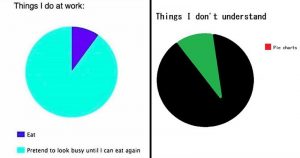I like how this podcast ended on a positive note after going through some drastic highs and lows throughout. There were a few specific messages throughout it that really stuck with me. First was Dr. Bezio’s statement that being a Leadership major is a risk compared to ‘safe’ majors that our parents tell us will guarantee a job and money. If I had a dollar for every time a family member ask me how leadership studies will get me a job or suggest that I major in a ‘hard skill’, I wouldn’t need a career. Furthermore, I think it’s important that she suggests that type of risk taking is necessary to create change. It also makes me feel better about my major choice.
The second thing that stood out to me was Dr. Bezio’s comment during the Titanic story about how social norms allowed for women and children to have access to the lifeboats first when she said that sometimes sexism has its benefits. This made me think of a quote that one of my friends came up with which is, “Its not what you can do for the patriarchy, but what the patriarchy can do for you.” Essentially the meaning is that, as women, it can be more beneficial to us to reap the benefits of sexism such as flirting your way out of a speeding ticket, getting men to do things for you by batting your eyes, etc. than to try to dismantle the patriarchy all on your own. Though it is more funny ironically and kind of problematic for the messages of this class, it brings us back to the podcast’s main message of taking risks and having to strive for wanting change. The better we become at this through the Jepson school, the more I believe we can help improve the world.

